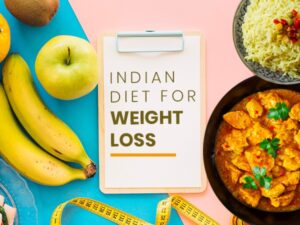you may deal with some concerns regarding Dietary fibres/ roughage.
Today, you may get all the information regarding Dietary fibres.

What are dietary fibres?
Dietary Fibres are Polysaccharides also named roughage, these are indigestible parts of plant-based foods. Mainly found in whole grains, pulses, and fruit walls of vegetables and fruits. This fibre plays a very significant part in the digestive system.
What are the Major Types of Dietary Fibres?
There are mainly two types of Dietary fibres are as follows:
Insoluble Fibres:
These fibres are not soluble in water. These benefits reduce the symptoms of constipation and facilitate regular Bowel movements.
Examples: brown rice, whole-wheat foods, almonds, pistachios, kale etc.
Soluble Fibres:
These fibres are soluble in water. These are benefits to reduce glucose absorption and also benefit from lowering blood cholesterol levels.
Examples: lentils, chia seeds, beans, apples, pears and oatmeal etc.
You Can Also Read Physiological and Metabolic Functions of Dietary Fibres for Health Management.
Do Dietary fibres necessary for a Healthy Diet?
Classification based on Degradability and Fermentability:
Fermentable Fibres:
The fibres are fermented in the large intestine by gut bacteria. They also produce short-chain fatty acids that are rapidly absorbed and stimulate water and sodium absorption in the colon.
Examples: Inulin, guar gum, pectins, oligofructose and beta-glucans.
Non-Fermentable Fibres:
The fibres are not fermented by gut bacteria.
These are benefits to prevent the risk of autoimmune diseases such as multiple sclerosis.
Examples: Cellulose, Hemicellulose and lignins.
Naturally existing plant-based fibres:
Lignins:
These are benefits to promote soft stools that add bulk to the diet.
These insoluble fibres mainly exist in nuts, vegetables, unripe bananas, and chia seeds.
Hemicellulose and Cellulose:
These are insoluble fibres, mainly present in cereal grains and the wall of fruits and vegetables also acts as a lubricating agent.
Inulins, Oligofructose and fructooligosaccharides:
These belong to fermentable fibres which mainly exist in onion stalks, artichokes and asparagus.
These are benefits for maintaining blood glucose levels.
Resistant Starch:
These belong to soluble fibres that exist in potatoes, unripe bananas, legumes, and lentils. These are beneficial to promote bulky stool.
Guar gum:
These belong to soluble fermentable fibres, these are fermented in the small intestine and help to uphold blood cholesterol levels.
Pectins:
These belong to soluble fibres commonly exist in berries, pears and apples. It helps to slow the digestion process due to their gelling properties.
Manufactured Fibres (Extracted from Natural Plants sources):
Polyols and Polydextrose:
These are soluble fibres manufactured by sorbitol and glucose, help to promote soft stool and bulky stool, also useful to reduce the risk of diabetes, high blood pressure and cardiovascular disease.
Modified Inulin, gums, pectins and resistant starch:
These soluble fibres that originated from plant sources, are modified or isolated by plant sources and added to diets or fibre supplements.
Psyllium:
These fibres belong to the group of non-fermentable fibres. This ability to hold water content in bulk Also promotes soft stools and is beneficial to maintaining cholesterol and glucose levels.
What the Major Health Advantages of Dietary Fibres:
- Useful for Weight Management.
- Useful for Preventing the Risk of Breast Cancer.
- Useful for preventing the risk of colorectal cancer.
- Useful for preventing the symptoms of fissures and piles.
- Useful for preventing the risk of coronary heart diseases.
- Useful for reducing the sign of IBS (Constipation).
- Useful for reducing the risk of Diverticula diseases.
Adverse Effects of Excess Consumption of Dietary Fibres :
Overconsumption of Dietary fibres may cause some common symptoms including:
- Dehydration.
- Weight gain or weight loss.
- Stomach pain.
- Diarrhoea.
- Constipation.
- Bloating.
- Feeling too full.
- Flatulence.
- Unwanted gasses.
Recommended Dietary Fibres Intake:
The Recommended dietary fibres intake to maintain good Health, published these new recommendations provided by USDA:
- Women below 50 years: 25 to 28 grams per day.
- Men below 50 years: 31 to 34 grams per day.
- Women 51 years or above: 22 grams per day.
- Men 51 years or above: 28 grams per day.
Explore More Organic Healthy Food Products On “FOODVEZ”
Stay Healthy.

